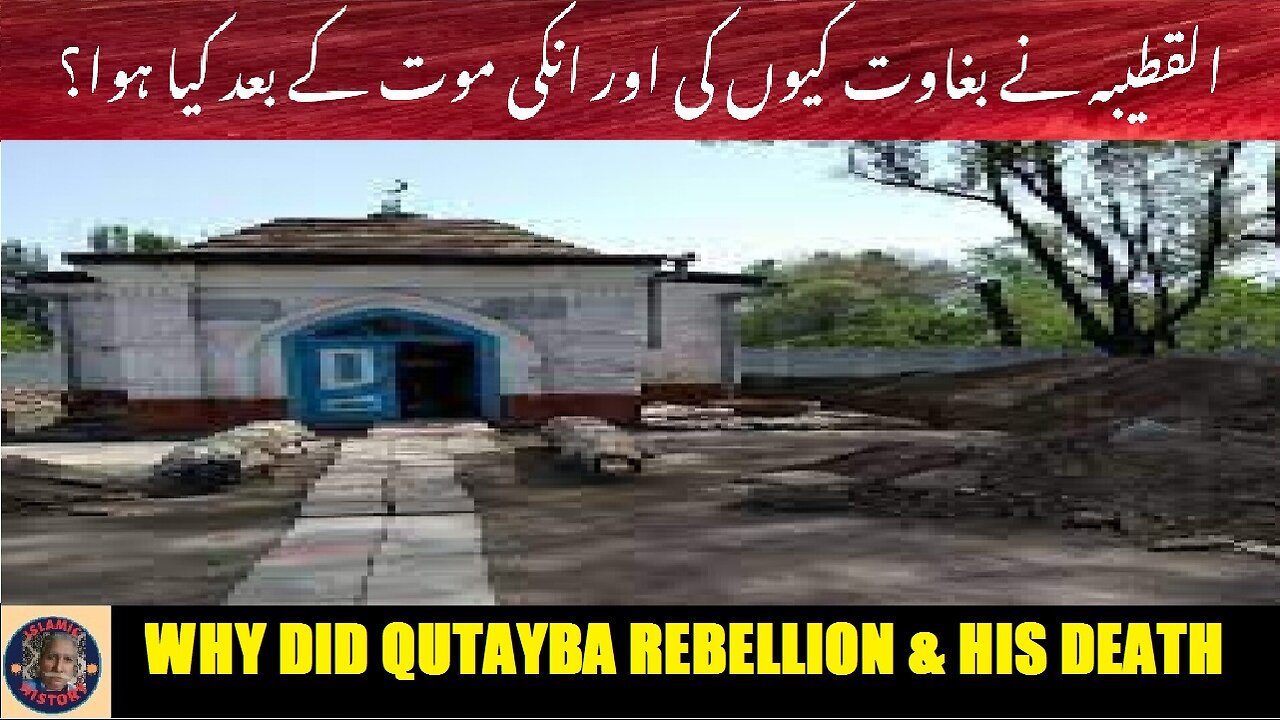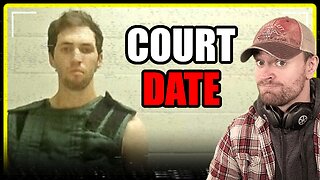Premium Only Content

Qutayba rebellion and happen aftermath. قطبیبہ نے بغاوت کیوں کی اور ان کی موت کے بعد کیا ہوا؟
@islamichistory813 #RebellionHistory #Qutabyba #PoliticalDynamics
Why did Qutabyba rebellion and happen aftermath of his death.
Dekhti Aankhooon aur sountay kaanoon ko Asslamoalaikum, sisters, brothers friends and elders, In this Islamic warrior leaders informative videos, we are describing the Qutabyba rebellion, focusing on the factors that precipitated this uprising and the consequences that followed Qutabyba's demise. Through a detailed exploration of the historical context, we aim to provide insights into the motivations behind the rebellion and the subsequent shifts in power dynamics. Watch complete video and Get to know the significance of this pivotal moment in history with us.
Caliph Walid quickly re-confirmed Qutayba as governor, and even made his province independent from the governor of Iraq, but Qutayba's position was not secure: the Arab army was tired of constant campaigning and was still riven by factional rivalries, while Qutayba himself had alienated the most powerful Arab tribal groups. He was generally popular among the native Iranians, but the leader of the native auxiliaries, Hayyan an-Nabati, had secretly turned against him. Qutayba was completely unaware of the situation however, and began preparations for the campaign of 715, during which he intended to finally capture the Ferghana Valley and complete the subjugation of the Jaxartes valley. His only concern was that his old rival, Yazid ibn al-Muhallab, might be restored to the Caliph's favour after al-Hajjaj's death, and he took few precautions except for removing his family and belongings from Merv to Shash and placing a guard on the Oxus.
His campaign against Ferghana was under way when news reached the army of Caliph Walid's death and the accession of his brother Sulayman ibn Abd al-Malik to the throne. The new Caliph was a bitter enemy of Qutayba, for the latter had argued in favour of excluding him from the succession. Although Sulayman re-confirmed him in his position as governor, Qutayba feared that he would soon be removed. At the last, after negotiations with the new regime in Damascus failed, Qutayba resolved to rebel. The Khurasani Arabs refused to support him, and the native auxiliaries, although favourably disposed towards him, were prevented from declaring their support by Hayyan al-Nabati. Only his family, his fellow Bahili tribesmen and his bodyguard, the Archers, remained faithful. The opposition, led by the Tamim tribe, coalesced around their leader Waki ibn Abi Sud al-Tamimi. In August 715 (according to al-Tabari) or early 716 (according to the 9th-century historian Ibn Qutaybah), Qutayba and other members of his family were killed at Ferghana by Arab soldiers. Waki ibn Abi Sud succeeded him as governor, and ordered the army to return to Merv, where it was disbanded.
After Qutayba's death, the Arab position in Transoxiana swiftly crumbled. His successors did not command his prestige among the local population and were unable to maintain his conquests in the face of local revolts and invasion by the Türgesh, and most of Transoxiana was abandoned or became hotly contested territory in the years after his death. During this period, the Arabs suffered the grave defeats of the "Day of Thirst" and the Battle of the Pass and were weakened by internal conflicts as well. Only after 738, under Nasr ibn Sayyar, were the Umayyads able to restore the Caliphate's control over most of Transoxiana, and only with the decisive victory of the new Abbasid Caliphate against the Chinese armies at the Battle of Talas in 751 did the local princes accept Muslim control as final.In the south too, the Zunbil of Zanbulistan ceased his payment of tribute to the Caliphate and remained resolutely independent for decades after.
Qutayba's role in the conquest and gradual Islamization of Central Asia was crucial, and in later times, a number of locations in Ferghana where his tomb was supposedly located (Narshakhi and Jamal Qarsh) were venerated by pilgrims. His descendants too continued to hold influential positions: his son Qatan served as governor of Bukhara, Salm, another son, governed Basra and Rayy, and his nephew Muslim was governor of Balkh. His grandsons, especially the numerous sons of Salm, continued in high office under the Abbasids until well into the ninth century.
So sisters brothers friends and elders, tomorow we are going to described Who was Warrior Abd Allah Ibn Ali and what was his leading role?. Allah hafiz
==================================================
-
 7:08
7:08
ISLAMIC HISTORY
2 hours agoBiography of Scholar Abd al-Rahman ibn Faqi Mahmud سوانح حیات عبدالرحمٰن بن فقی محمود
2 -
 1:59:24
1:59:24
The Charlie Kirk Show
2 hours agoRemembering Charlie's Martyrdom and Continuing His Revival | Driscoll, McPherson | 9.29.2025
124K33 -
 LIVE
LIVE
Sean Unpaved
2 hours agoEuropeans Too Good, Lamar's Limp-Off, & the MLB's Playoff Party: Weekend Sports Review
209 watching -
 LIVE
LIVE
Mark Kaye
2 hours ago🔴 TRUMP Furious Over Bad Bunny Super Bowl Halftime Show
992 watching -
 46:58
46:58
MattMorseTV
3 hours ago $6.20 earned🔴COURT DATE for Kirk's ASSASSIN.🔴
26.6K24 -
 LIVE
LIVE
Nerdrotic
3 hours ago $2.02 earnedOne Woke After Another | JK Rowling NUKES Emma Watson - Nerdrotic Nooner 520
878 watching -
 2:06:35
2:06:35
Steven Crowder
4 hours agoTrump Hammers Portland: ANTIFA is a Terrorist Organization that Must be Crushed
372K247 -

Side Scrollers Podcast
3 hours agoSmash Pro DEMANDS “Woke Echo Chamber” + EA SOLD To Saudis + More | Side Scrollers
10.7K -
 LIVE
LIVE
Viss
3 hours ago🔴LIVE - How To Win in PUBG - PUBG 101 with Viss
121 watching -
 1:46:56
1:46:56
The Mel K Show
2 hours agoMORNINGS WITH MEL K - The Bow Has Broken: Justice is Coming 9-29-25
24.4K7